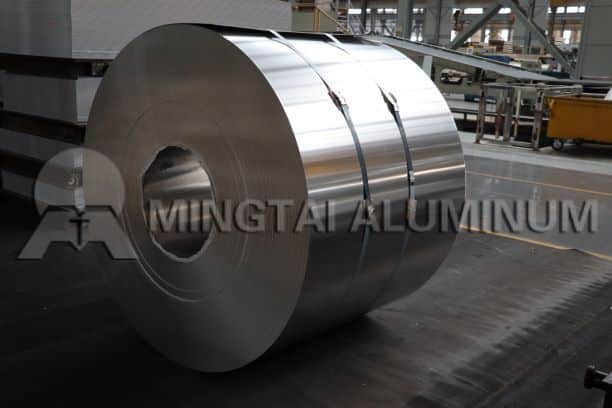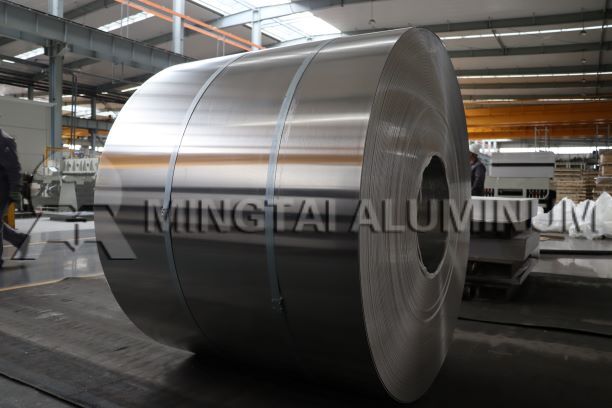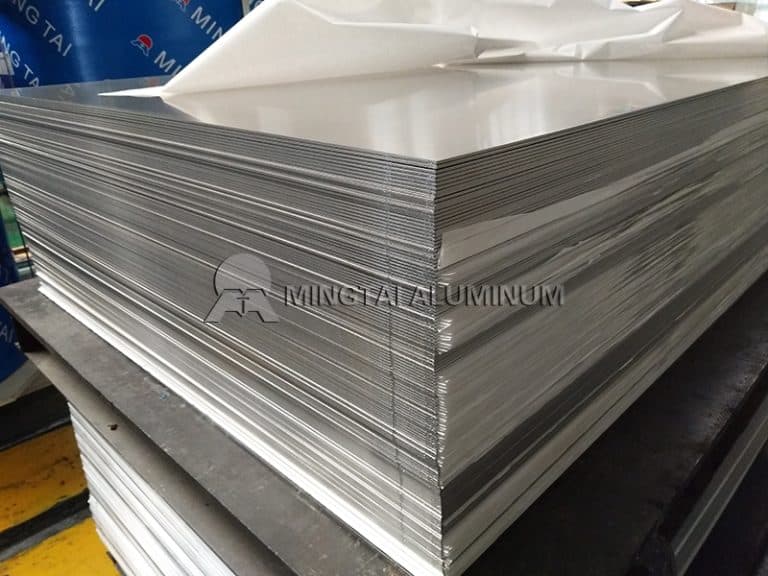
In the aluminum world, everyone’s after tough, rust-proof stuff for things like building, packaging, and cars. The 3105 aluminum coil is a star because it fights rust like a champ and carries electricity well. But not every 3105 aluminum coil manufacture is the same. If you’re buying or designing and want products that last, you gotta know what makes great production. This guide spills the beans on what to look for.
What’s So Great About 3105 Aluminum Alloy
Why 3105 Aluminum Rocks
The 3105 aluminum coil is from the aluminum-manganese crew. It has good anti-rust performance, good electrical conductivity, and the electrical conductivity can reach 41%. It’s super bendy when soft, pretty flexible when partly hardened, but not so much when fully hardened. It holds up against rust and welds nicely, though it’s not the best for machining.
With thicknesses from 0.2–10mm and widths up to 2650mm, it’s used for stuff like color-coated coil bases, lamp heads, shutters, bottle caps, and cake trays. These need steady quality for strength and a smooth look.
What Makes a 3105 Aluminum Coil Manufacture Awesome
Using Pure, Reliable Materials
Why the Alloy Mix Matters
The mix in 3105 alloy has to be just right to keep strength and stretchiness steady. Tiny changes in manganese or other bits can mess with rust resistance or how it shapes. This is a big deal for coils used in roofing or siding that face rough weather.
Why Good Suppliers Are a Must
Getting materials from trusted suppliers means you know where they came from and they meet global standards. Top 3105 aluminum coil manufacturers like MINGTAI ALUMINUM are picky about materials to keep out any junk from the start.
Rolling It Right and Keeping Thickness Even
Using Spot-On Equipment
Fancy rolling machines are key to keeping coil thickness the same across big rolls. Even small slip-ups can cause trouble when shaping or coating later.
The typical thickness range for 3105 aluminum coil is between 0.2–10mm, which requires advanced equipment capable of tight tolerances—often within ±0.01mm—to match what customers need.
How It Affects Looks and Strength
A smooth, flat surface makes coatings stick better and looks nice for decorative stuff. Messy rolling can cause ripples or bumps, which hurt both the look and the strength.
Prepping and Coating the Surface
Cleaning It Up
Before coating a 3105 aluminum coil, it needs a good scrub. This means degreasing and using chemicals to zap dirt. These steps keep coatings from peeling or rust sneaking in under the surface.
Coatings That Stop Rust
Since 3105 coils are used outside—like for roofing or blinds—coatings are super important. Color-coated versions are a hit because they’re tough and look awesome.
Typical products include color-coated aluminum coil base material, so coating lines use great paints (polyester or PVDF) put on evenly with roll-coating and baked at the perfect temp.
Checking for Quality
Testing Strength and Stretch
Every batch of coils should get checked for strength (around 130–180 MPa), yield strength (at least ~110 MPa), and stretchiness (over 10%). These tests make sure the material can handle bending or shaping without breaking.
Looking for Surface Bumps
Workers check coils under bright lights to spot scratches, dents, oil marks, or tiny bits stuck in the surface. Some 3105 aluminum coil manufacturers use cool camera systems to catch flaws even better.
Making Sure Sizes Are Right
They measure thickness at different spots with precise tools. Width has to stay within ±1mm of what the customer wants.
Sticking to Industry Rules
ISO Certifications
The best 3105 aluminum coil manufacturers follow ISO standards like ISO 9001:2015. This means they’ve got solid plans for everything from buying materials to shipping products.
MINGTAI ALUMINUM shines by mixing research with production to keep quality steady, even for huge orders.
Following ASTM B209 Rules
ASTM B209 sets standards for aluminum coils, covering strength, size, and surface quality. Good manufacturers like MINGTAI ALUMINUM include test reports with every shipment to show they meet these rules.

When picking a 3105 aluminum coil manufacture service or product, go for suppliers who nail the material mix, roll with precision, use great coatings, do solid quality checks, and follow global standards like ASTM B209.
MINGTAI ALUMINUM is a great pick, offering temper options like F, O, H12 through H26, thicknesses from 0.2–10mm, and widths up to 2650mm. We are pros at making color-coated aluminum coil bases. Our all-in-one setup means top quality, fair prices, and deliveries you can count on.
For projects needing reliable performance—whether for building siding or industrial parts—MINGTAI ALUMINUM’s high-quality 3105 aluminum coils are a awesome choice, backed by precise engineering you can trust.
FAQ
Q: How do I pick a good 3105 aluminum coil maker?
A: Find makers with a strong reputation, like MINGTAI ALUMINUM. Check for important certifications like ISO 9001 or ASTM. Ask to see customer feedback or get samples to check quality. A reliable manufacturer will be transparent about their methods and standards.
Q: Can 3105 aluminum coils be made special for my job?
A: Yes, totally! Many makers offer custom sizes. You can get different thicknesses, widths, or coatings to fit your project – think roofing or packaging. Talk to your supplier early. This helps ensure they can tailor them to your exact needs.
Q: Who uses 3105 aluminum coils most?
A: These coils are super versatile. They work great in construction for things like roofing and siding. Food packaging uses them too, such as for can lids. Automotive makers also like them for lighter parts. Their rust resistance and bendability make them useful almost anywhere.




